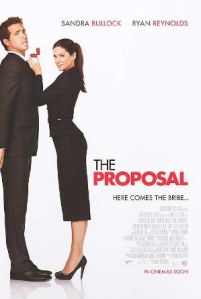It’s not a spectacularly interesting week in local comic shops, so I’ve decided I’d rather talk about two extraordinary performances by actresses that I enjoyed over the weekend.
 I saw Follies at the Kennedy Center on Friday. It’s a musical about a reunion of showgirls with a score by Stephen (Sweeney Todd, A Little Night Music, etc.) Sondheim and a book by William (The Lion in Winter) Goldman, and the original production was directed by Harold (Evita) Prince and choreographed by Michael (A Chorus Line) Bennett, and it could hardly have a more prestigious pedigree. I’d never actually seen a full production of it, though I watched and enjoyed a concert version that ran on PBS a couple of decades ago. Seeing it unfold from beginning to end forces me to conclude that it’s got some great songs, some very effective moments, and isn’t very good in terms of sustained storytelling.
I saw Follies at the Kennedy Center on Friday. It’s a musical about a reunion of showgirls with a score by Stephen (Sweeney Todd, A Little Night Music, etc.) Sondheim and a book by William (The Lion in Winter) Goldman, and the original production was directed by Harold (Evita) Prince and choreographed by Michael (A Chorus Line) Bennett, and it could hardly have a more prestigious pedigree. I’d never actually seen a full production of it, though I watched and enjoyed a concert version that ran on PBS a couple of decades ago. Seeing it unfold from beginning to end forces me to conclude that it’s got some great songs, some very effective moments, and isn’t very good in terms of sustained storytelling.
The first act sketchily introduces the four leads – two former showgirls and their husbands, one pair being resolutely middle class, the other wealthy and elite – and gives a number of actresses of a certain age (in this case, Linda Lavin, Elaine Paige, Terri White, and others) the chance to bring down the house. The second act focuses more intently on the disintegration of the two marriages, and the piece ends on a spectacular note with a sequence, “Loveland,” where the protagonists each get a dazzling number that articulates their angst in song and dance.
Ostensibly, the biggest draw to the production should be Bernadette Peters, who plays middle-class Sally, the emotionally fragile ex-showgirl who has completely unrealistic hopes for the reunion, most of them centered on her unresolved feelings for rich, elite Ben (played by Ron Raines of Guiding Light fame). You would think the role would be right in her wheelhouse, but maybe she was cast too well. I rarely found myself thinking about the character (who isn’t particularly sympathetic to begin with) as much as the ways Peters’ own narrative intersects with the role.
For me, the knockout, starring performance came from Jan Maxwell as Phyllis, the chorine turned high-society matron who harbors deep (and justified) dissatisfactions under her pristine exterior. I vaguely remember liking Maxwell in some episodes of Law and Order, but I wouldn’t trade the experience of seeing her perform live for anything, even in a show as problematic as Follies. Fairness demands that I acknowledge that Phyllis is probably the best written character in the show, and she certainly gets to perform my favorite numbers (“Could I Leave You?” and “The Ballad of Lucy and Jessie”). All the same, she rips into the role with a seriousness of purpose and a focus that are marvelous to witness. While she’s hardly the best singer and dancer on the stage, her musical numbers are informed by her acting choices, particularly the sense that Phyllis is rediscovering the joy of performing and what it brings to her as an independent entity. Of the “Loveland Numbers,” hers was the one that brought down the house, even with Peters doing a creditable job with the lachrymose cabaret standard “Losing My Mind.”
As for the rest of the cast, their relative success depends on how invested they are in playing a role rather than performing a number. The audience loved Lavin’s “Broadway Baby,” but it seemed to me more of a lively night-club number than an organic part of Follies. Paige’s take on “I’m Still Here” seemed to demonstrate a mighty (and unsuccessful) struggle to make an iconic number personal. White’s “Who’s that Woman?” deservedly stopped the show, partly for the force of her performance and because it’s one of the rare moments when the show’s core concept actually coheres perfectly. White and the other showgirls perform an old favorite as ghosts of their former selves perform with varying degrees of synchronicity, at times displaying the indignities of age. (And, great as White is, the number gave Maxwell the first opportunity to show Phyllis rediscovering herself through performance.)
Raines sings wonderfully well, but his performance isn’t sufficiently complex to make selfish bastard Ben particularly involving. Danny Burstein is close to great as Sally’s long-suffering husband, Buddy. I was delighted to see the actors playing younger versions of the central quartet rewarded for their hard work in thankless roles with spot-on performances terrific songs in the “Loveland” sequence, the wittily written “You’re Gonna Love Tomorrow” and “Love Will See Us Through.” (In truth, I think Lora Lee Gayer gave a better performance as Sally than Peters did, and she gave a pretty good performance as Peters at the same time.)
 Because it was devastatingly hot in our nation’s capital, we spent part of the next day in the cool comfort of a movie theatre watching Super 8. Let me tell you, there are a number of worse ways you could spend a hot afternoon. The overall narrative doesn’t offer any surprises, but the execution is packed with craft and grace notes. Sure, it’s basically J.J. Abrams writing and directing a mash note to the films of Stephen Spielberg, but Abrams avoids the worst of his inspiration and executive producer’s tendency towards cheap sentiment while crafting what’s ultimately a really entertaining, nicely paced movie. (I’ve whined before about filmmakers’ tendencies to pad out the final act of a film with totally needless hullaballoo, but there’s none of that here.)
Because it was devastatingly hot in our nation’s capital, we spent part of the next day in the cool comfort of a movie theatre watching Super 8. Let me tell you, there are a number of worse ways you could spend a hot afternoon. The overall narrative doesn’t offer any surprises, but the execution is packed with craft and grace notes. Sure, it’s basically J.J. Abrams writing and directing a mash note to the films of Stephen Spielberg, but Abrams avoids the worst of his inspiration and executive producer’s tendency towards cheap sentiment while crafting what’s ultimately a really entertaining, nicely paced movie. (I’ve whined before about filmmakers’ tendencies to pad out the final act of a film with totally needless hullaballoo, but there’s none of that here.)
The whole cast is strong, but I was mesmerized by Elle Fanning as I was several summers ago by her older sister, Dakota, in director Spielberg’s War of the Worlds. (Of course, Dakota Fanning was the only thing worth watching in that movie, which made the performance that much more magical.) In Super 8, Elle Fanning plays the generally thankless role of the only girl in a group of boys. I’m not quite sure if it’s because of her performance or due to Abrams’ design, but “the girl” in this case actually has agency and doesn’t just end up being a catalyst for the boys’ reactions. There’s some of that, and the boys are all good at playing their respective archetypes, but Elle Fanning is endlessly watchable and sympathetic. Honestly, I’d like to see her nominated for an Academy Award. She’s just that good.








